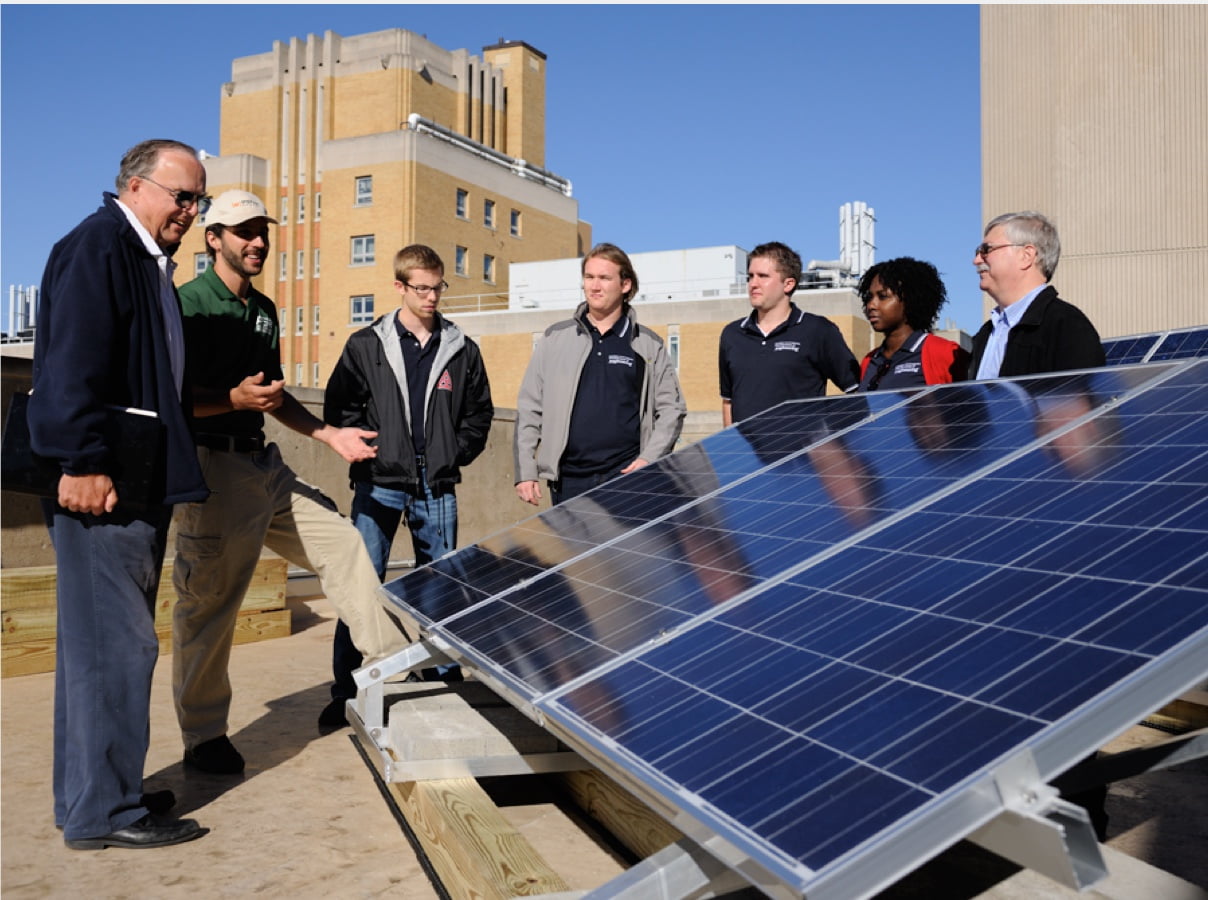Renewable Energy Sources
In 2024, 32.4% of the University’s electricity originated from renewable energy sources. Learn more about our progress.
Closing this gap requires a combination of solutions, including on-site renewables, directly purchased renewables, long-term power purchase agreements, and renewable energy certificates (all detailed below).
On-site Renewables
- The University of Pittsburgh has rooftop solar installations dating back to 2012 — and is planning for additional future installations.
- Rooftop solar arrays currently adorn Petersen Sports Complex and Ruskin Hall on the Pittsburgh campus, with many more in design and construction.
- Learn more on the Solar page.
Long-term Power Purchase Agreements
- The University of Pittsburgh is currently committed to one long-term power purchase agreement (PPA) for local, renewable electricity.
- The University purchases all of the electricity from the 20-megawatt Gaucho Solar facility just 25 miles from the Pittsburgh campus (on the border of Allegheny and Beaver Counties). This ~35,000 MWh annually is ~18% of Pitt’s annual electricity need.
Renewables in Electricity Retail Contracts
- In 2019, Pitt’s first 100% renewables contract was for a small electricity portfolio representing 4% of the University’s annual electricity usage.
- In mid-2020, Pitt committed another ~7% of its electricity usage to 100% renewables via a separate contract.
- Current retail contracts (2022-25) include 20% renewables or better.
- In 2024, Pitt joined the Western Pennsylvania Energy Consortium, helping ensure additional renewable electricity.
Renewable Energy Certificates
- In 2009, Pitt began regularly purchasing small amounts of renewable energy certificates (RECs) specific to LEED building certifications.
- For both FY19 & FY20, the University purchased 32,000 RECs (or 32,000 MWh), equating nearly 14% of Pitt’s annual electricity consumption.
- All RECs purchased by Pitt for LEED projects were Green-e certified; today, the University does not procure separate RECs for standalone projects, instead relying on long-term PPAs and structured retail agreements.
- Learn what a REC is from the U.S. EPA.

